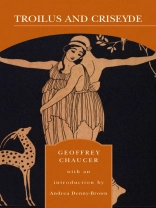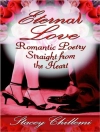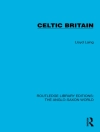Love. War. Sex. Betrayal. And finally: a heros violent end.
Chaucers masterwork
Troilus and Criseyde is an epic with the inner turmoil of medieval romance, a tragedy with comedic self-reflection. The story tells of two lovers: Troilus, a young Trojan hero, and Criseyde, the beautiful widow with whom he falls desperately and dramatically in love.
The fate of this love seems to be controlled by various self-serving forces-from Criseydes pandering uncle, to the political machinations of the war-yet the central theme upon which this text hinges is the degree of Criseydes own culpability in her change of heart regarding Troilus. At the core of this question exist crucial issues regarding the position of the individual in relation to medieval society, to Gods plan, to human history, and ultimately to the literary canon itself. Indeed, in the plight of the ill-fated lovers, and in Chaucers inspired treatment of them, we can find a prototype of the star-crossed lovers in Shakespeares later
Troilus and Cressida and
Romeo and Juliet.
Over de auteur
Born into a family of merchants, Chaucer was placed as a page in the household of Elizabeth de Burgh, the countess of Ulster and the wife of Prince Lionel, son of King Edward III. It was through this early association with the nobility that Chaucer met various members of the royal family who would shape his future life as both poet and public servant. Chaucer enjoyed such prestigious positions as controller at the customhouse, and justice of the peace. He also won an election to Parliament. Chaucer likely wrote and read aloud his Troilus and Criseyde for the court of Richard II.












